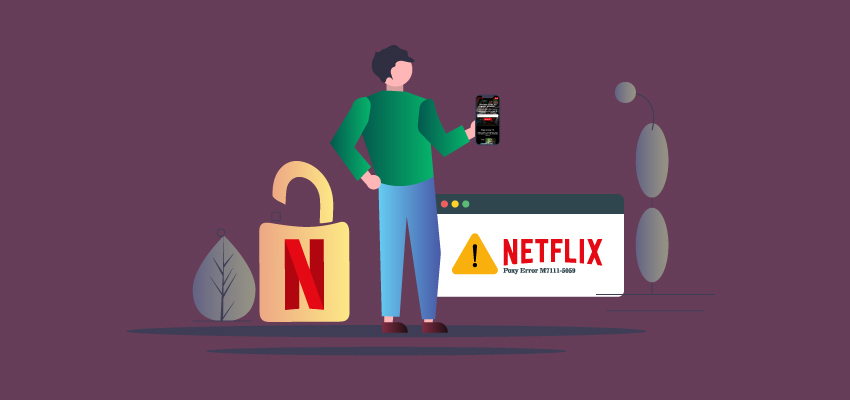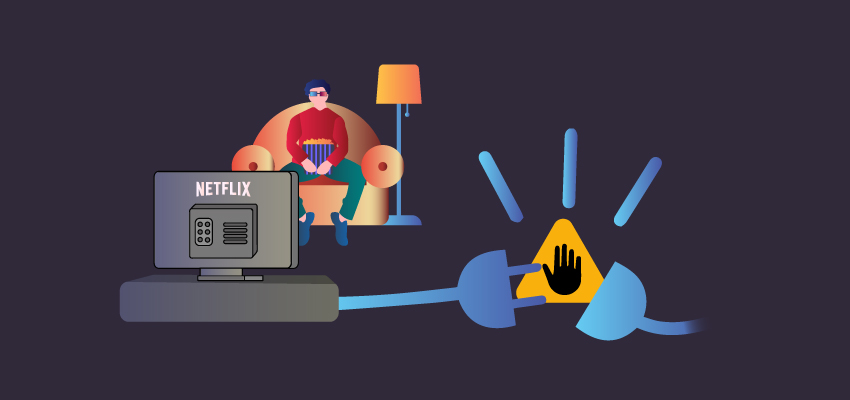
Free VPN vs Paid VPN: Which Option Is Best for Your Online Security?
- September 4, 2021
- 9 minutes Read
- VPN Service
As the names imply, the fundamental difference between a free VPN and paid VPN is that one is gotten through paid subscription while the other does not attract any payment. However, as is common with things given for free, there are also some prices to pay, directly or indirectly.
The primary function of VPNs is to keep their users completely anonymous while surfing the internet. Apart from this, it protects you from cyber criminals and gives you unrestricted access to geographically restricted areas. The very idea of getting all these free sounds incredible and amazing, to say the least.
The truth is that considering what it takes in terms of cost to run a reliable VPN, most of which offer services like, developing clients’ apps, providing user support, and a lot more, then you will agree with me that it definitely cannot be totally free. This is because VPN providers are also entrepreneurs whose primary aim in starting a business is to make a profit.
Paid VPN service providers generate income through the subscription you make. On the other hand, free VPNs generate income when you’re using their services for ”free”. When a VPN promises to offer mouthwatering and seductive services without billing a dime, it is terrific and demands caution.
All in all, the last thing you would expect from a VPN is to compromise your privacy and security to generate income for itself. This article seeks to unveil the differences between free and paid VPNs, take you out of the risks associated with the so-called free VPNs, and help you get the best out of the most reliable VPNs.
Have you ever cared to ask, “how can a VPN company be making money when I am using their services for free? “
A cursory exploration into what free VPN providers do to make a profit can go a long way toward answering the above-mentioned question. Now let’s veer into these:
Free VPN vs. Paid VPN
Tracking your online activities and selling your personal or browsing data:

This can be said to be the most worrisome mischief a VPN can commit. The primary function of a VPN is to protect your privacy while you browse the internet. It, therefore, becomes disheartening and a disservice when it is discovered that many VPNs have third-party trackers in their software.
These trackers are used to collate data on your online activities to enable advertisers to make you their target. It is ironic that instead of providing privacy for you, they do the opposite. They collect your information and sell it to the highest bidder. Some VPNs hide this nefarious activity of selling data while others imply it in their privacy policy.
For instance, Psiphons clearly states in their privacy policy that they track your activity and give advertisers access. Many VPN providers accept the fact that they share your data with advertisers while you’re in session and inundate you with ads. Conversely, paid VPNs provide you the privacy you deserve because they have fewer trackers than all apps generally.
Compromising your security:

As mentioned before, the primary reason for using a VPN is to protect you from hackers. It, therefore, becomes worrisome when many free VPNs are discovered to contain malware. The first significant complaints that users come up with are malware and bugs.
When an app is infested with bugs, it can cause some security breaches, which can make the devices contact viruses and malware. Most of the malware has to do with advertising. Free VPNs largely depend on advertising to generate income.
It is ironic to know that any VPN that offers you a free product is more dangerous than one that limits your data. On the other hand, paid VPNs come with inbuilt ad blockers, malware protection, and unlimited bandwidth.
They Cannot Unblock Netflix:

As a matter of fact, no free VPN can reliably unblock Netflix. Netflix, like other streaming sites, uses the toughest blocks in the world. It is only a few VPNs that are able to break Netflix. Free VPNs are often besieged with error messages when they try to unblock Netflix.
TunnelBear offers 500 MB to their free VPN users, which is too small to achieve anything on browsing. ProtonVPN may succeed in unblocking Netflix when they use special servers but to make this up; they intentionally slow down your internet speed.
Throttling and buffering by these free VPNs can be highly frustrating. However, the truth remains that it is difficult for a free VPN to offer access to Netflix. To bypass Netflix geo-blocks, you need to subscribe to paid VPN because it requires a huge amount of resources that a free VPN cannot afford.
They Limit the Amount of Data You Can Use:

It is a known fact that most the free VPNs limit the amount of data you can use. Free VPNs offer limited data to their customers to lure them to upgrade to paid subscriptions out of frustration. TunnelBear is known for this as it provides 500 MB only to its customers per month. This data can hardly achieve anything online. The user will therefore be frustrated and be forced to go for the paid plan.
Internet Activities Are Slowed Down:

Poor quality VPNs naturally slow down your online activities. It becomes more frustrating when your VPN provider intentionally slows you down because you are using their services for free. Proton VPN has been earmarked for this. They give priority to paid subscribers who enjoy their optimum browsing speed while the free users’ surfing experience becomes depressing due to snail-pace speed.
You Will Be Inundated With Ads:

One of the ways free VPNs make money from their users is to bombard them with ads. Since users do not pay a monthly subscription, the company will look for other means of generating income. It is annoying anytime you open your VPN, you’ll first be worn out with a series of ads.
These myriads of ads slow down internet activities and may contain malware. Showing ads on VPNs because it is given free raises issues that border on privacy. This is because when ads are displayed on VPNs, it means you’re sharing your online activities with third parties.
Selling Your Bandwidth:

These crop of free VPNs allow paid-package customers to make use of the processing power of your device. This simply means that they sell your bandwidth for profit. They also sell your device’s bandwidth to cyber hackers for criminal purposes. The caveat is that, whether you’re going for free or paid VPN, it is advised you read and understand the terms and privacy policies of the company.
This will enable you not to take a jump in the dark. At least, you need to know the type of data the VPN keeps. Many free VPNs keep logs; some paid ones also do. There are many paid VPNs that maintain a no-log policy such as, Symlex VPN, ExpressVPN, Cyberghost, TunneBear, NordVPN, and others.
The Benefits of Using Paid VPN

What comes to mind at the idea of going for anything free, is that “a beggar has no choice”, according to popular parlance. The irony is that some things superficially presented as being free are not utterly free. The truth is that free VPNs are too risky. They are too true to be true. The risks do not worth the largesse.
Incidentally, getting a subscription to a paid VPN does not cost a fortune. With as little as $5.99 a month, you can subscribe to Symlex VPN, and it can become an investment. It will let you avoid some of these precarious sides of free VPN. However, here are some of the benefits of using paid VPN:
1. You Will Bypass Geoblock: Paid VPN can unblock many geo-restrictions on major streaming sites such as Netflix, Amazon, Hulu, and more.
2. You Will Enjoy Unlimited Bandwidth: With paid VPN, there is no restriction on internet usage. But with a free VPN, your bandwidth is limited.
3. Your Multiple Devices Are Protected: Paid VPNs can protect numerous devices; the beauty of it is that connections can be done simultaneously. Some paid VPNs can even protect an unlimited number of devices. This is not possible with a free VPN.
4. Topnotch Security: When you subscribe to a dependable paid VPN like Symlex VPN, internet security is guaranteed. It offers solid-rock security features which ensure you actualize the primary purpose of a VPN which are privacy and security.
5. You Get Premium Value: Apart from their low prices, paid VPNs offer discounts to about 75 per cent of their users. Some of these include Symlex VPN, 70% discount,7 days money-back guarantee; ExpressVPNz,49%,30 days money-back guarantee,3 months completely free; Cyberghost,83% discount, 45 days money-back guarantee; Private Internet Acess,83% off,2 months free and 30 days money-back guarantee and more.
Speed is Faster:
When you use a free VPN, you’re susceptible to throttling by ISPs. This they do by deliberately slowing down your connection, especially if you are torrenting or streaming too much. Those who stream Netflix, video, and games on a free VPN should be familiar with this experience.
Also, while exploring your VPN options, it’s also essential to learn more about proxy vs VPN to make an informed decision about your online security.
Final Words
The truth is that if you want online privacy and complete online security, go for paid VPNs and avoid free VPNs. A free VPN is not really free as the name sounds. It can cost you more than you would have used to subscribe to paid VPN. The issues of slow speeds, constant interruptions, and restricted streaming associated with free VPNs can be a nightmare. A little dime spent on a subscription to a paid VPN can become an asset.
Of course, it should be seen in this light because with paid VPN, you’ll enjoy the bliss of complete internet privacy, secured connections, security, open internet, no-holds-barred streaming of your favorite sites, and more importantly, complete joy and peace of mind.
Finally, check out our video here on Free VPN vs Paid VPN – Price Is Not The MAIN Difference!





